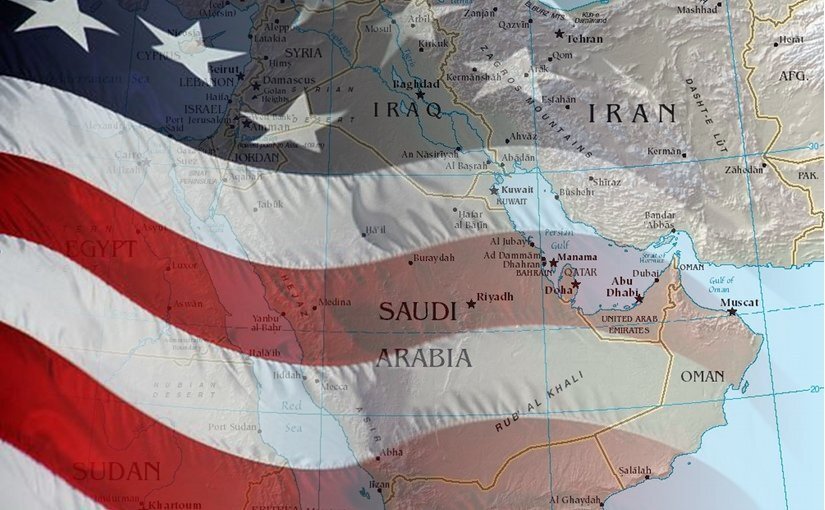Escalating Tensions in the Middle East: Yemen and Beyond
As of early 2024, the Middle East remains on the edge of a catastrophic regional conflict, driven largely by the continued U.S. and British military operations in Yemen and the broader escalation of violence in Gaza. The Biden administration, which came into office promising a shift away from the “forever wars” of the past, now finds itself entangled in a dangerous and expanding military campaign that risks igniting a wider conflict.
The conflict in Yemen, which began years ago as a civil war, has morphed into a proxy battlefield for regional powers. After years of Saudi-led bombings, supported by U.S. arms, the Houthis remain in control of key parts of the country. Their actions, including attacks on international shipping in the Red Sea, have been framed as retaliation against Israeli aggression in Gaza—a war that has drawn widespread condemnation across the Arab world.
In response, the U.S. launched over seventy airstrikes on Houthi positions in early January 2024, a sharp escalation of the military campaign. Officially, the strikes are intended to protect international shipping routes, which have been disrupted by Houthi actions. However, this explanation falls flat for many, who see the campaign as another chapter in the U.S.’s longstanding pattern of interventionism in the Middle East, prioritizing economic interests over human lives.
While Washington justifies its involvement as essential for maintaining “freedom of navigation,” the deeper cause of the violence—the ongoing Israeli assault on Gaza—remains unaddressed. The Houthis have made it clear that their actions are a response to this brutal war, and without a ceasefire between Israel and Hamas, the situation will continue to spiral out of control.

The Legal Challenge of Biden’s War Powers
The legal implications of Biden’s military campaign in Yemen have drawn increasing attention from both lawmakers and legal experts. The U.S. Constitution clearly states that only Congress has the authority to declare war, yet the administration’s ongoing airstrikes in Yemen have proceeded without any formal congressional approval. In doing so, Biden has continued the troubling tradition of executive overreach that has defined U.S. foreign policy in the post-9/11 era.
Critics from across the political spectrum—progressives, centrist Democrats, and even some Republicans—have raised concerns about the legality of these actions. The strikes on Yemen began as part of a response to attacks on U.S. and Israeli-linked shipping in the Red Sea but have quickly evolved into what the administration now refers to as a “sustained military campaign.” However, this justification is seen by many as insufficient, given that the Houthis’ attacks are largely driven by the ongoing war in Gaza and the U.S.’s support for Israel’s actions.

For decades, U.S. presidents have increasingly taken advantage of the ambiguity in war powers legislation to launch military operations without seeking approval from Congress. Biden’s actions in Yemen represent a continuation of this dangerous trend, raising fundamental questions about the separation of powers and the unchecked expansion of presidential authority in matters of war.
The Houthis, who control vast territories and represent a significant portion of Yemen’s population, are a major political force in the region. Yet the U.S. continues to treat them as non-state actors, complicating the legal framework surrounding military actions. The argument that bombing a country doesn’t constitute war simply because ground troops are not deployed is deeply flawed. The strikes against Yemen, carried out in the name of protecting U.S. interests and Israeli economic interests, are part of a broader campaign of imperialist interventions that have fueled decades of instability in the region.
The Fragile Situation in Gaza and Its Regional Repercussions
As we move into 2024, the humanitarian disaster in Gaza remains at the heart of the region’s escalating violence. Israel’s ongoing campaign of ethnic cleansing and mass murder has claimed thousands of Palestinian lives, with entire communities decimated by relentless airstrikes and ground assaults. The situation in Gaza is not only a moral catastrophe but also a key driver of instability across the Middle East.
Despite overwhelming international pressure, President Biden has refused to call for a ceasefire between Israel and Hamas. Instead, his administration has doubled down on military support for Israel, while engaging in direct military actions in Yemen and elsewhere. The result has been a dramatic escalation in regional tensions, with countries across the Arab world outraged by U.S. complicity in the slaughter of Palestinian civilians.

The Houthis, in particular, have taken a prominent role in opposing Israel’s actions, launching attacks on Israeli-linked shipping in the Red Sea as a form of resistance. While the Biden administration has responded with airstrikes on Houthi positions, these actions have done little to address the root cause of the conflict—the ongoing war in Gaza.
For seven years, Yemen has been devastated by a brutal Saudi-led campaign, backed by the U.S. and other Western powers. This campaign, which has resulted in widespread famine, disease, and death, has created one of the world’s worst humanitarian crises. In this context, the U.S.’s decision to launch yet another military campaign in Yemen is not only reckless but also deeply immoral. The strikes have led to widespread protests in Yemen and have further inflamed anti-American sentiment across the region.
A Regional War in the Making?
As of January 2024, the Middle East is teetering on the edge of a broader regional war. The Israeli government’s aggressive actions in Gaza and Lebanon, combined with the U.S.’s military strikes in Yemen, Iraq, and Syria, have heightened the risk of a full-scale conflict. There are growing concerns that the situation could spiral into a war that engulfs the entire region, with devastating consequences for millions of people.
U.S. officials have reportedly drawn up contingency plans for a wider war, and there is increasing speculation that Israel may deliberately provoke a larger conflict in an attempt to salvage its floundering war effort in Gaza. The Biden administration, which has so far resisted direct involvement in the fighting in Lebanon, may find itself dragged into a new war if Israel’s actions continue to escalate.
The Houthis have warned that they will not allow the U.S. strikes on Yemen to go unanswered, and the prospect of further retaliation looms large. The possibility of a regional war, involving the U.S., Israel, Hezbollah, and various other factions, is no longer a distant threat but an increasingly likely reality. The Houthis have made it clear that their attacks on shipping are intended to pressure the U.S. into supporting a ceasefire in Gaza, yet Washington continues to ignore these demands.
For President Biden, the stakes could not be higher. His administration’s failure to pursue diplomatic solutions, combined with its reckless military actions, has set the stage for a conflict that could define his presidency. Without a dramatic shift in U.S. policy, the Middle East is headed toward another disastrous war, with no end in sight.


